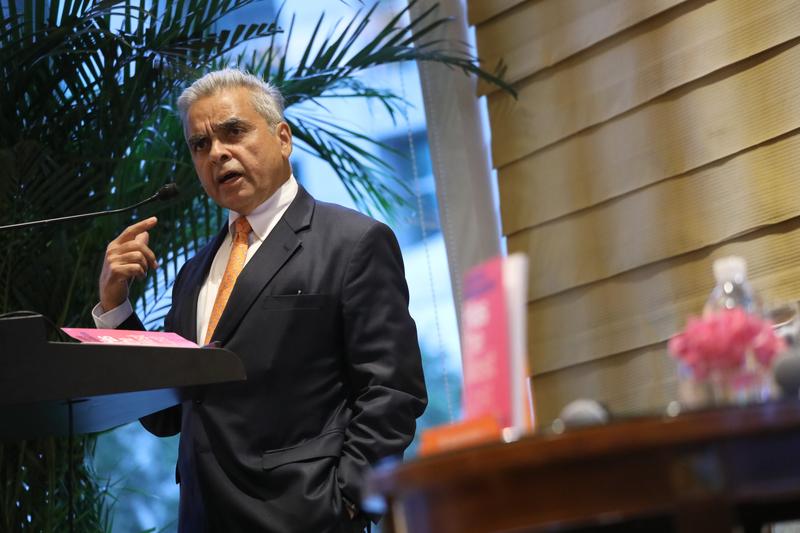Hong Kong people should be very careful about being used as pawns in a geopolitical struggle, a leading Singaporean academic and former diplomat said.

Kishore Mahbubani says Hong Kong people should not be used as pawns in somebody else's struggle. (Photo: China Daily)
"Whenever the world's No 1 emerging power is about to become bigger than the world's No 1 power, a geopolitical contest breaks out. This is normal in history," said Kishore Mahbubani, distinguished fellow of the Asia Research Institute at the National University of Singapore (NUS). "But the danger is that other people can be used."
The people of Hong Kong should defend their rights and try to improve their living conditions, but they should not be used as pawns in somebody else's struggle, said Mahbubani, who is also the founding dean of the NUS Lee Kuan Yew School of Public Policy.
"They must not be misled into believing that the West will support them," Mahbubani said. "The West will always put its own interest first. …The West doesn't necessarily support democracies."
For example, during the Cold War, the West sacrificed India, which was then the world's largest democracy, to support a dictatorial state in the West's rivalry with the Soviet Union, said Mahbubani, who had spent over 30 years with the Singapore foreign service, including service as the country's permanent representative to the United Nations.
Mahbubani was speaking in Hong Kong on Tuesday for the launch of his latest book, Has the West Lost it? A Provocation.
During an interview with China Daily, Mahbubani said it is important for the Hong Kong government to establish a dialogue with the demonstrators to address the issues in the short term.
He cited the example of the "yellow vests" movement that started in November against French President Emmanuel Macron's economic reforms. Although the problems were not resolved completely, tensions were gradually eased by the government's dialogue with all sectors of society, Mahbubani said.
But in the long term, Mahbubani said, the socioeconomic causes that have led to the unrest in Hong Kong for the past three months must be dealt with.
A case in point is the "absurd" cost needed to own a property in Hong Kong. In a report by Hong Kong's Legislative Council Secretariat's Research Office, in 2017, an average Hong Kong household needed to save about 19 years of income to afford an average-priced flat in the territory. The ratio was four times that of Singapore and some 50 percent higher than that of Sydney.
"The reason why the global human condition has been improved so much is because the most populous country — China — has experienced spectacular improvement," Mahbubani said.
However, though the last 30 years has been the best 30 years in history for the bottom 50 percent of people on the Chinese mainland, it has not been the same for the bottom 50 percent of people in Hong Kong, Mahbubani said.
Noting political power in the city was locked up for over 150 years during the British colonial period, Mahbubani said the city, which was allowed to focus only on economic development in the past, lacks the foundation to better manage itself in the political sense.
Mahbubani said Hong Kong can achieve and develop good public housing systems for its people, but pointed out this will require a very strong consensus among all the elites in the city.
"I must say I sympathize a great deal with the police officers in Hong Kong. They've been trying to do a good job under very difficult circumstances," said Mahbubani, referring to how the city's police force handles violence and vandalism during the protests.
While peaceful and legal protests should be allowed, Mahbubani said, the only response to vandalism, which is detrimental to social stability, is to "implement the laws of society very strictly".


